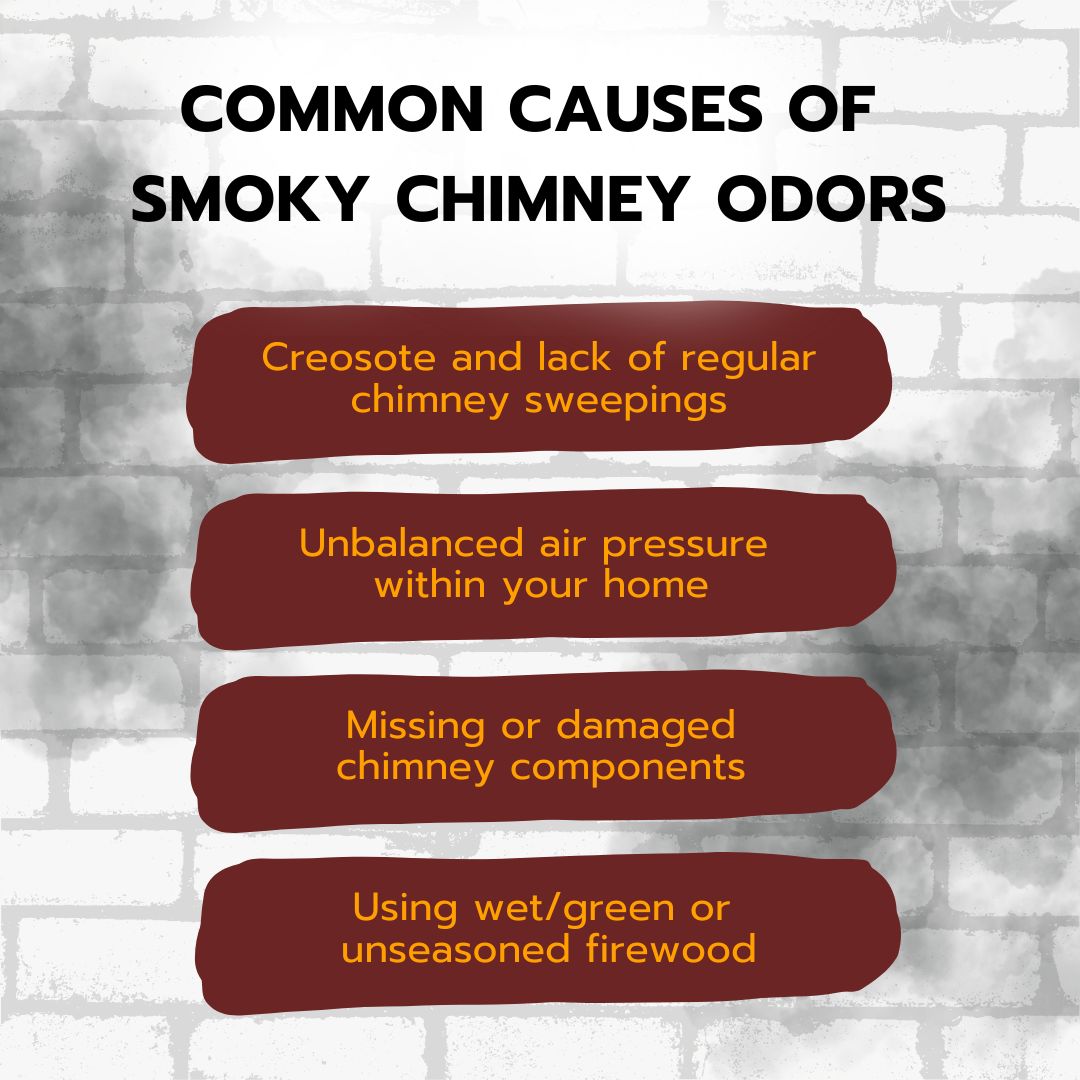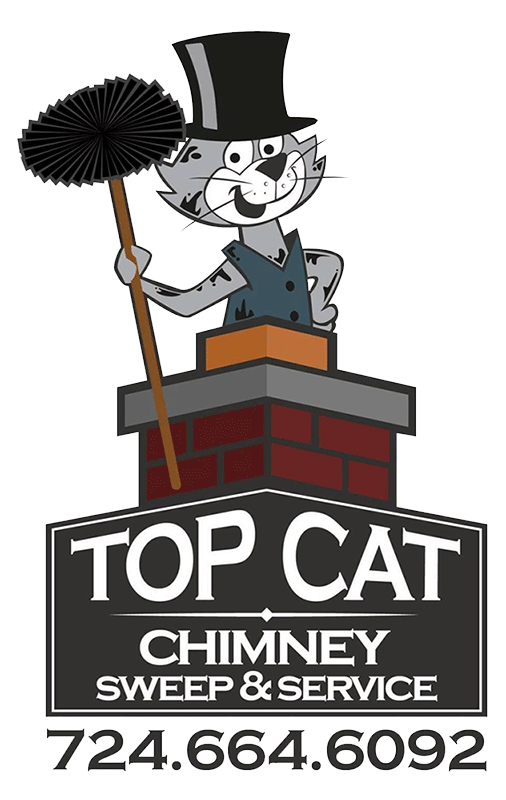Ah, the embracing warmth. The enchanting flames. The inviting, pleasing scent … or is it pleasant? One of the appealing aspects of the fireside experience is a homey aroma. So what should you do when the multi-sensory enjoyment of your fireplace is tainted by a lingering smoky smell?
Well, we’ve got some answers and services that can help. Read up, then give us a call or book online today.
Where’s My Fireplace’s Smoky Smell Coming From?
Smoke is a byproduct of a wood fire, but a smoky smell isn’t a necessary add-on to fireplace ownership. If you have one, there’s a reason. And where there’s a reason, there’s a remedy. Here are a few things that may be contributing to your unwelcome smoke smell:

- Creosote. A frequent offender in the smoky smell arena is creosote. This thick, dark substance is produced by burning wood and forms as a residue inside your chimney. This can lead to poor draft, release odors, and also pose a chimney fire risk.
- Air Pressure. The movement of air in your home plays a significant role in how well your fireplace works. If your home is tightly sealed up or the outside air pressure is otherwise higher than that inside your home, smoke might not vent out of your home as it should. Basically, the air pressure inside and outside your home will try to equalize, pressing in smoke and gases you want outside.
- Damage. A mismanaged installation or damaged chimney components can also cause smoke to backdraft into your home. Cracks or gaps can cause smoke to escape improperly, and blockages can have a similar effect.
- Wet Firewood. If your firewood is wet for any reason – because it’s too green, improperly stored, or has soaked up moisture – it’s going to generate more smoke and less heat when burned. This can give you smoke smell, and also contribute to creosote build up, which can further contribute to…you guessed it…smoke smell!
How Can I Fix Smoky Chimney Smells?
Once you know what the causes of smoky chimney odors can be, you can move toward resolution. Here are some steps to take, and they’re good practices all-around. Smell or no smell, they’ll help keep your chimney and fireplace functioning optimally.
- Chimney Inspections & Sweeping. This is step number one in keeping odors – and many other issues – away. Scheduling annual inspections and frequent chimney sweeping will ensure that your system is clear and in good repair. An experienced professional will be able to clear out creosote and other obstructions, check for structural issues or damaged components, and identify anything else that might be impairing chimney function.
- Manage Drafts. If your aroma issues aren’t resolved after having your chimney swept, give some attention to air pressure issues. Is your home well ventilated? Are there steps you can take to balance airflow? Dealing with air pressure issues will take the pressure of trying to perform with less-than-ideal ventilation off of your system!
- Burn Good Firewood. Wood is generally considered well seasoned when it’s been dried for at least six months, or has visible cracking and sounds hollow when knocked. Well dried wood will burn clean and hot. Make sure your logs get adequate air circulation when burning, too, to improve the quality of your burn and reduce smoke.
- Consider Parts Upgrades. All the components of your chimney should be in good repair and be maintained as needed. Your damper and chimney cap, for instance, play a significant role in controlling ventilation and protecting your system against blockages. Making these upgrades (if needed) will be good for your chimney overall, and also help keep smoky odors away.
Other Causes of Fireplace Odors
Smoke smells aren’t the only fireplace odors to avoid. These smells may not be linked to smoke, but are also less than ideal:
- Animals. If a bird or small animal nests in your chimney, makes frequent visits, or gets trapped, you may end up with strange smells and debris. Animals can also create hazardous chimney obstructions, so don’t let critters linger. Get them cleared out, have your chimney swept, and consider a chimney cap to prevent future recurrences.
- Moisture. A leaky chimney or lots of humidity can let moisture build up, leading to musty smells. Moisture mingling with soot or leading to mildew growth can exacerbate smell issues, and moisture can cause structural damage, too. A chimney technician can help identify where the moisture is getting in and get the issue resolved.
- Burned Materials. Seasoned firewood is all that should be burned in a fireplace. If treated wood or non-wood items find their way into your fireplace, they can produce noxious odors and toxic chemicals when burned.
- Old Ashes. Ashes that aren’t regularly cleared out can start to smell as they decompose. Cleaning them out regularly will help, and will help your fires get better airflow, too.
- Ventilation Issues. You know imbalance in air pressure can force smoke and gases into your living space, but it can also draw in other odors from the outdoors.
Don’t Live With Smoky Smells – Reach Out Today
Wherever your aroma issues are stemming from, there’s no reason to live with them. Schedule a chimney inspection. Our friendly professionals can help you get to the bottom of the issue, and with a simple schedule of routine maintenance we can not only help keep chimney odors at bay, but also help ensure that your chimney is as efficient and safe as it should be.
We want to help you embrace the warmth and comfort your fireplace should offer – without any smoky side effects! Call or book online now.
